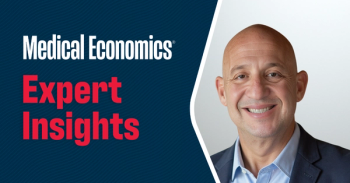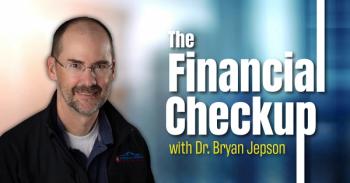
- Medical Economics July 2021
- Volume 98
- Issue 7
5 things to consider when making a financial plan
From the moment doctors earn an M.D. to the day they hang up their white coat for good, they face unique financial hurdles and dilemmas.
Physician spend their lives caring for others, but they also need to take care of themselves, including their financial well-being. From the moment doctors earn an M.D. to the day they hang up their white coat for good, they face unique financial hurdles and dilemmas.
What follows are five key components that every medical professional should consider when putting together their financial plan.
Student loan debt
Medical school students will accumulate an average of $192,000 in student loan debt by the time they graduate. In comparison, the average student loan debt per student in the United States is $37,172.
Carrying five times the student loan debt as the average college graduate, medical professionals are starting their careers with a monumental financial burden. That’s why for most health care workers, paying down student loan debt is a top priority for the first five, 10, 15-plus years of their career.
If you’re still working to pay down debt, continue to make this a priority as you work with your financial adviser. Student loan debt that is not paid down strategically can wreak havoc on your credit score, savings goals, home buying dreams and retirement planning.
A robust estate plan
Your career is demanding, but you still need to make time to prepare a plan to protect your future legacy. From determining what will happen to your private practice after your passing to ensuring your spouse and children are well taken care of, a robust and well-defined estate plan is critical for health care professionals.
Disability insurance
For many medical professionals, establishing their own practice is a big goal. But pouring your resources and time into a private practice can leave you with little left in the way of savings, making disability insurance crucial for medical professionals.
For young doctors — and health care workers as well — their high-earning years are still ahead of them. Should they lose the ability to work now, they’re facing an uphill battle with debt to pay down and a loss of income. Disability insurance can help doctors, surgeons and other health care professionals protect themselves financially from this worst-case scenario.
Malpractice insurance
According to the American Medical Association, 1 in 3 physicians has faced a medical liability lawsuit in their career. That number jumps to nearly half for physicians 55 years and older.
You’re working in a high-stakes field, meaning a less-than-desirable outcome could incite legal action by a disgruntled patient or their family.
The good news is, around 68% of claims are dropped, dismissed or withdrawn. However, medical professionals will still pay an average of about $30,000 in defense costs. Having malpractice insurance can help reduce or eliminate this financial burden.
A good
financial adviser
You know better than anyone that your financials are unique and that your needs can differ greatly from those of friends and family who work outside the health care industry. As a result, your financial plan deserves the dedication of a financial adviser who specifically works with and knows how to help medical professionals.
The right adviser is able to accommodate your busy (and often erratic) schedule, address your student loan debt, assess your risk coverage options and help prepare a legacy for your family. Additionally, you may want to work with someone who can help you establish a practice and transfer it to new ownership when you’re ready to retire.
Finding a well-suited financial adviser can be one of the most impactful decisions you make regarding your financial plan.
As a health care professional, it’s important to know you have a thorough financial plan that addresses all of your financial concerns. Pay special attention to these five components to help make the planning process productive and comprehensive.
Julianne F. Andrews, MBA, CFP, AIF, is a principal and co-founder of Atlanta Financial Associates. Send your personal finance questions to
[email protected].
Articles in this issue
over 4 years ago
The benefits of purchasing a concierge practiceover 4 years ago
COVID-19 vaccines and medical liabilityover 4 years ago
How to keep getting paid for telehealth in 2021over 4 years ago
What physicians need to know about cyberliability coverageover 4 years ago
Motivating patients to achieve heart healthover 4 years ago
A Q&A with ONC director Micky Tripathiover 4 years ago
Decoding cryptocurrency: A physician investor’s guideover 4 years ago
E/M coding: Can you bill multiple same-day visits?over 4 years ago
4 areas to address to improve your bottom lineover 4 years ago
The link between financial success and patient satisfactionNewsletter
Stay informed and empowered with Medical Economics enewsletter, delivering expert insights, financial strategies, practice management tips and technology trends — tailored for today’s physicians.






